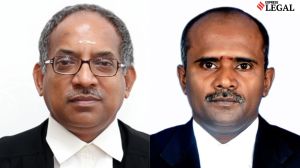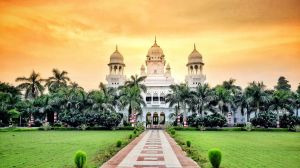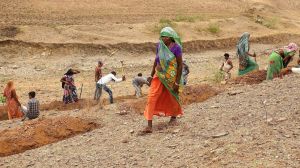Manmohan promises a New Deal for rural India
More than a month after he took charge, and nearly two weeks after protesting Opposition benches derailed his speech in Parliament, India1...

More than a month after he took charge, and nearly two weeks after protesting Opposition benches derailed his speech in Parliament, India8217;s most low-key Prime Minister in recent memory finally spoke to the nation.
Apart from a single, hefty swipe at the Opposition, Manmohan Singh focused largely on how India8217;s forgotten people would get to share in its growth and how he would reform the Government itself to make this possible.
Claiming that his coalition had been given a mandate to address the concerns of deprived sections and regions, he admitted: 8216;8216;I am convinced that the Government, at every level, is today not adequately equipped and attuned to deal with this challenge and meet the aspirations of the people.8217;8217;
His point: it was good for the Government8217;s excessive role to shrink in some areas, but in other sectors where it was still needed, it should perform more effectively.
The past decade, said Singh, had focused on reducing the role of the Government in controlling the private sector, and getting rid of curbs that hampered enterprise and often bred corruption.
8216;8216;That was necessary,8217;8217; he said, without shying away from giving credit to his predecessors. 8216;8216;Yet, there are many critical areas that directly affect the quality of life of every citizen where the Government has a role.8217;8217;
Citing elementary education, public health, drinking water, irrigation, roads and railways as some of these sectors, Singh said: 8216;8216;In each of these areas, at every level of governance, the reform of the Government is today an urgent task before us.8217;8217;
The mild-mannered Singh referred to the abortive discussion on the President8217;s address by saying that he had been looking forward to all parties participating in it. 8216;8216;It should be a matter of deep concern for us all when established mechanisms for a constructive dialogue and critique, which are vital for a parliamentary democracy, are disrupted.8217;8217;
Then, echoing his party8217;s well-worn line, he acknowledged that while the country had registered impressive gains in terms of health, education and even the economy, the benefits of this had not touched those most in need.
8216;8216;Growth is not an end in itself,8217;8217; he said. 8216;8216;It is a means to generate employment, banish poverty, hunger and homelessness.8217;8217;
He went on to touch on some specific initiatives that his government8212;no doubt, reformed8212;would pursue:
8226; A 8216;8216;new deal8217;8217; for rural India would see more credit, extension, training and technology. More specifically, he said, internal barriers to trade must go. 8216;8216;I would like to see the creation of a single market across the country for both manufactured and agricultural produce,8217;8217; he said. Value-added taxation would further intergrate the Indian market.
8226; Unplanned urbanisation, with its attendant problems of pollution, crime and sanitation would be addressed.
8226; Water-management would be a key focus area so that both farmers and city-dwellers could have access to it.
8226; Public spending on education would be stepped up, with the focus being on schooling of children from scheduled castes, scheduled tribes and the minorities.
- 01
- 02
- 03
- 04
- 05































